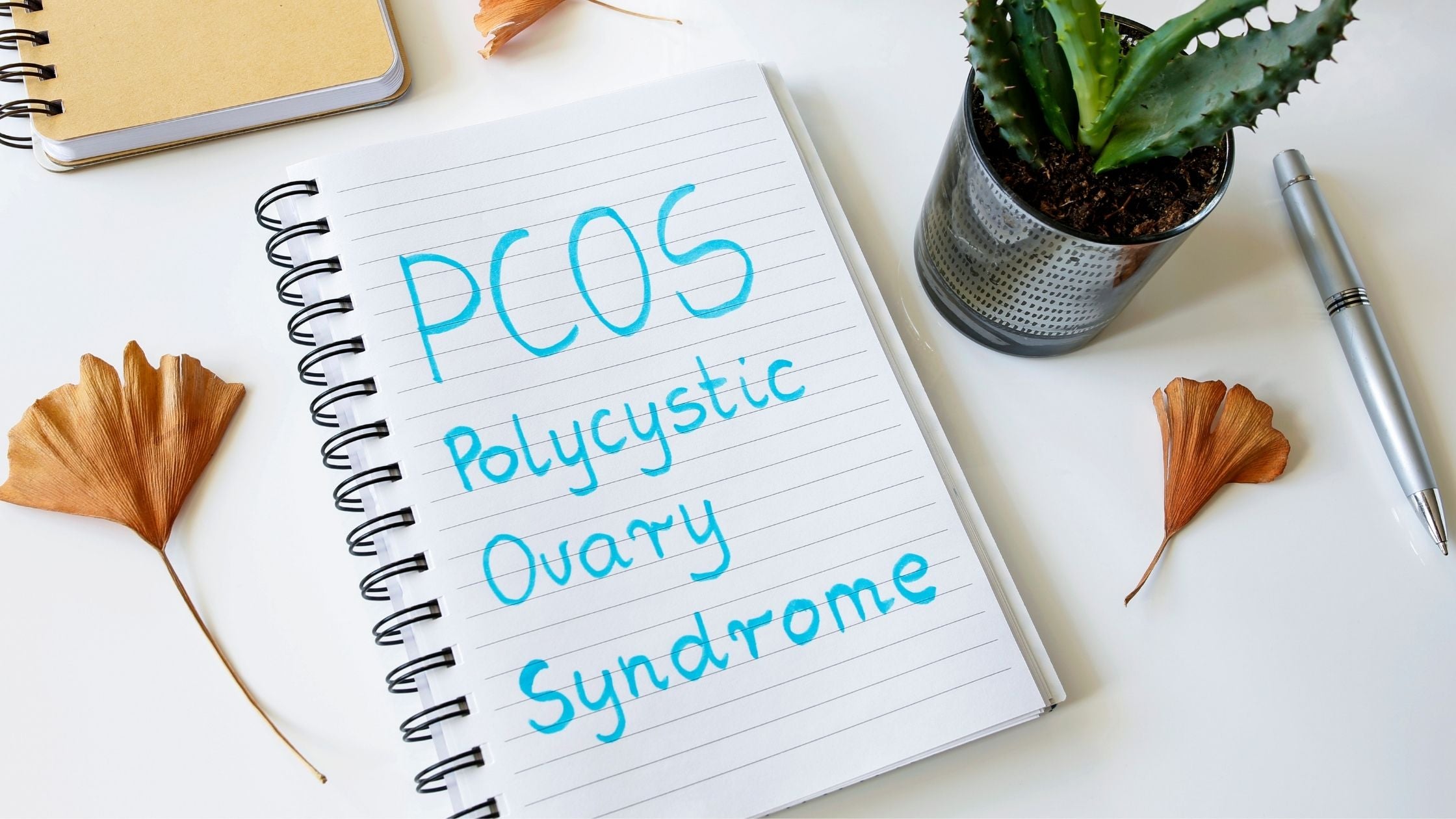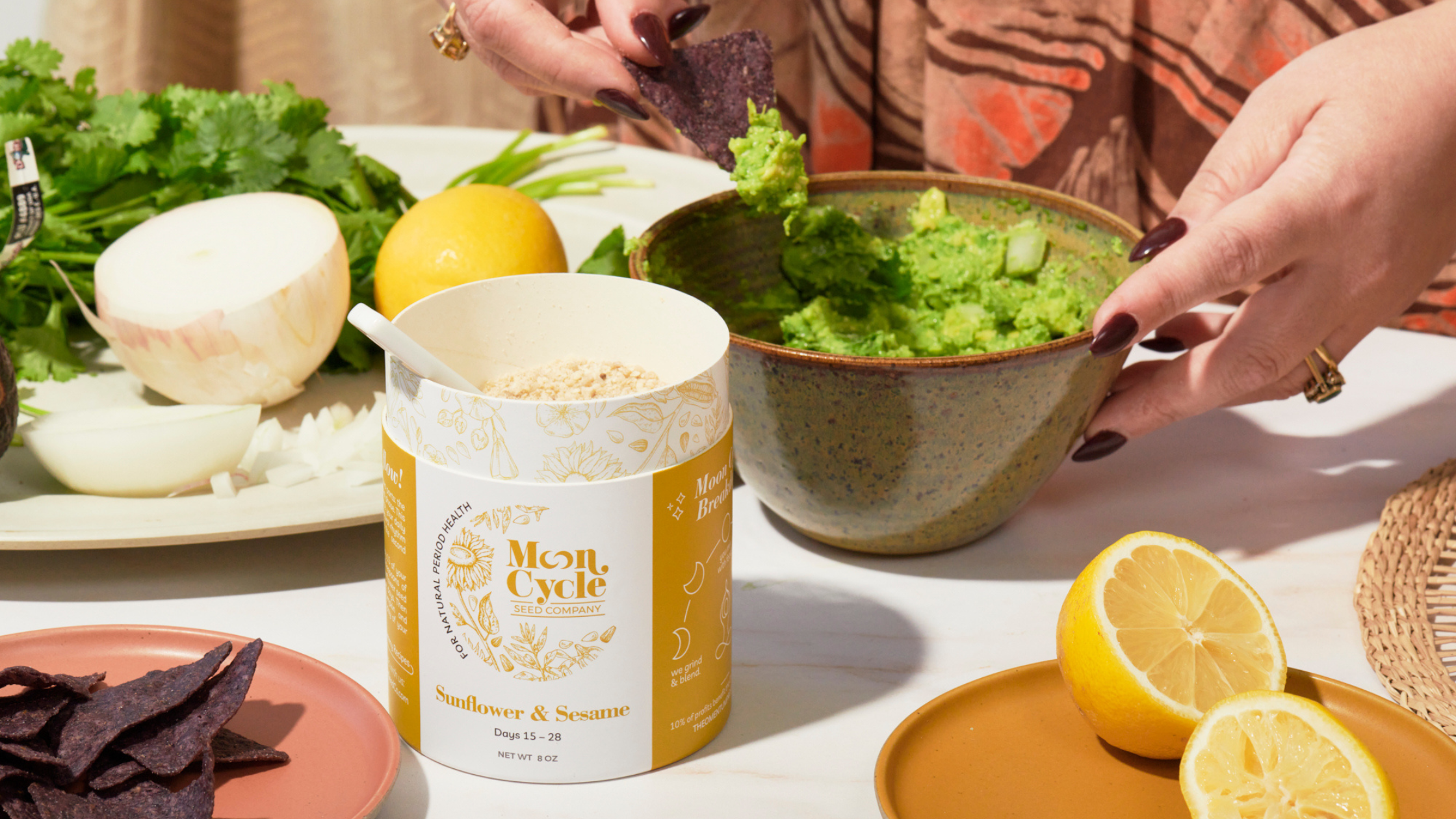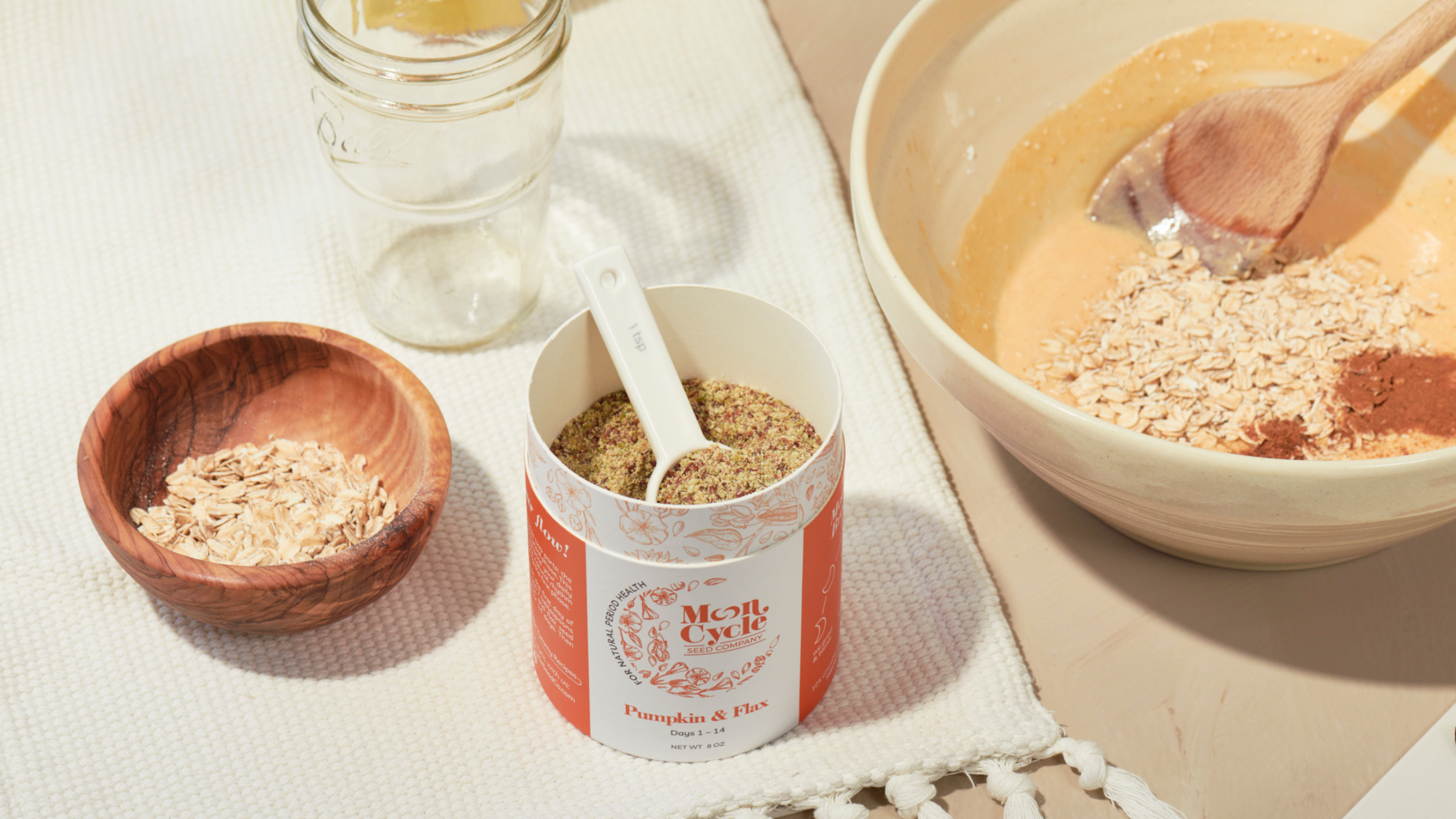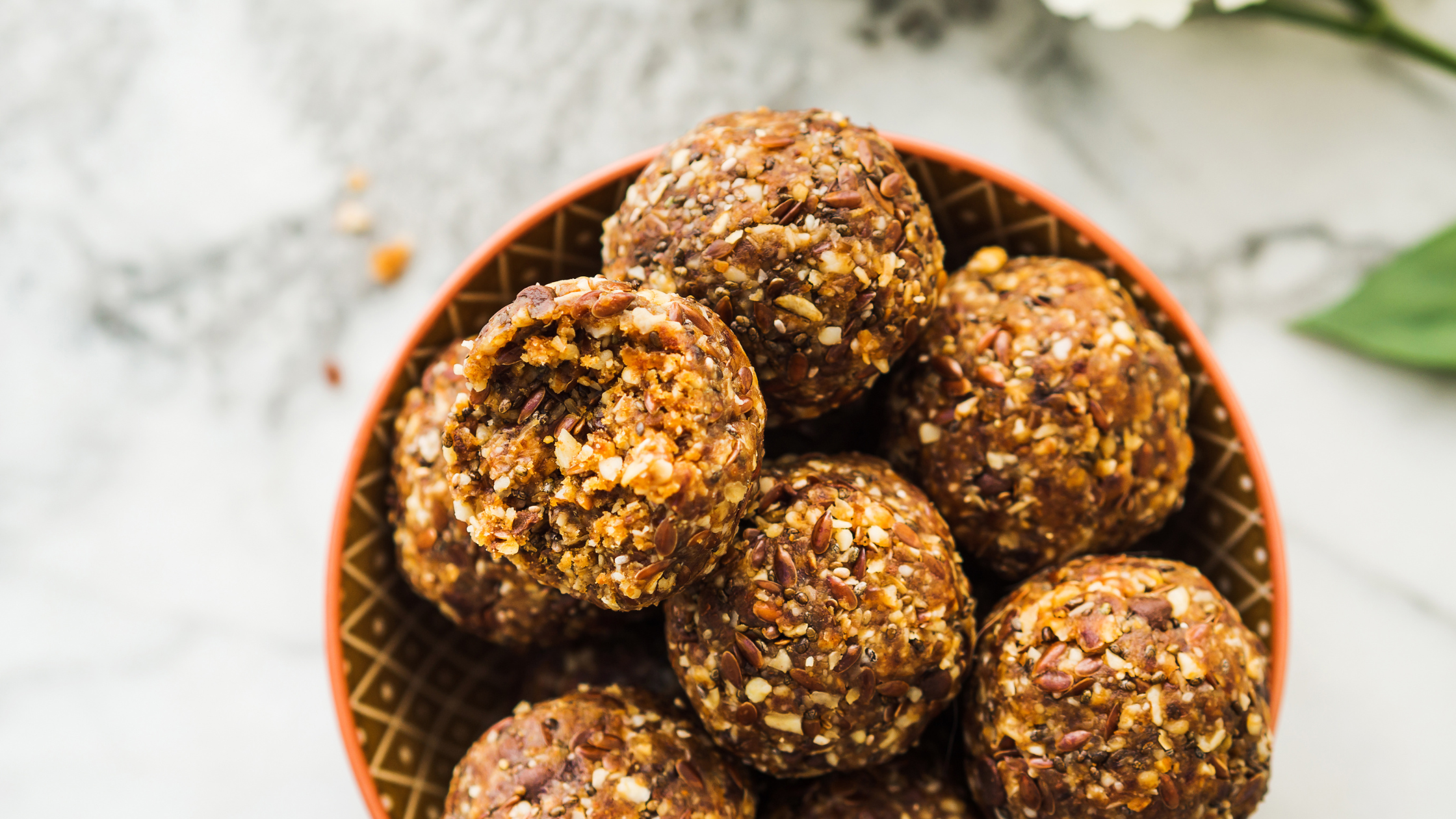
Seed Cycling for PCOS
Polycystic ovary syndrome (PCOS) is a hormonal disorder that is common among women of reproductive age. According to the Mayo Clinic, signs and symptoms of PCOS vary but a diagnosis is made when someone experiences at least two of these signs:
-
Irregular periods. Infrequent, irregular or prolonged menstrual cycles are the most common sign of PCOS.
-
Excess androgen. Elevated levels of male hormones may result in physical signs, such as excess facial and body hair, and occasionally severe acne and male-pattern baldness.
-
Polycystic ovaries. Ovaries may be enlarged and contain follicles that surround the eggs.

PCOS can be extremely frustrating and understandably, many women turn to hormonal birth control to control their symptoms. However, it is becoming increasingly common for women to seek out holistic remedies rather than rely solely on prescription hormones.
That is where seed cycling can come in. Although seed cycling as a PCOS cure has not been scientifically proven, it does help balance out imbalanced hormones- which is the root cause of PCOS.
Regardless of the lack of scientific evidence, seed cycling involves the intake of important minerals and vitamins for maintaining a healthy reproductive system and hormonal balance. Because there is little to no risk of implementing this method, many women follow seed cycling for PCOS symptom relief.
You can read more about the details of seed cycling here. The short explanation is that women can add four different seeds (pumpkin, flax, sesame, and sunflower) to their diet in a strategic combination and schedule to target and balance their estrogen and progesterone levels.
As noted above, irregular periods are quite a common symptom of PCOS. So, it is a relief to realize that although seed cycling is typically done with the schedule of a “regular” 28 day cycle, it is very possible to do without a regular cycle, too. Women are aligned with the moon and can use the cycle of the moon to cycle their seeds. How cool is that?
In summary, seed cycling is a promising addition to any woman’s life- especially those with hormonal imbalances and issues such as PCOS. If you are struggling, it is definitely worth a try.
This blog provides general information and discussions about health and related subjects. The information and other content provided in this blog, website or in any linked materials are not intended and should not be considered, or used as a substitute for, medical advice, diagnosis or treatment. This blog does not constitute the practice of any medical, nursing or other professional health care advice, diagnosis or treatment. We cannot diagnose conditions, provide second opinions or make specific treatment recommendations through this blog or website.





